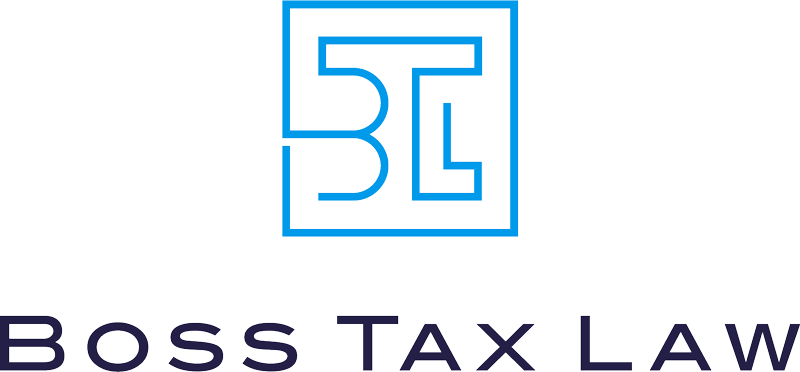Key Takeaways:
- Learn how admitting weaknesses upfront can improve your IRS negotiation outcomes
- Discover the “accusation audit” technique from FBI negotiator Chris Voss
- See how this approach helped one taxpayer secure a $300,000 refund
- Get actionable steps to implement this strategy in your own IRS interactions
Introduction: A Counterintuitive Approach to IRS Negotiations
When facing an IRS audit, appeal, or any tax authority interaction, most taxpayers instinctively hide their case’s weaknesses. This natural defensive posture, however, might be preventing you from achieving the best possible outcome.
What if acknowledging your mistakes and weaknesses before the IRS points them out could actually improve your chances of success?
This article explores a powerful negotiation tactic that I have used to help taxpayers navigate complex IRS situations and secure favorable results—even when their case had clear deficiencies.
The Accusation Audit: A Negotiation Tactic for IRS Success
The strategy comes from Chris Voss, former FBI hostage negotiator and author of the bestselling book Never Split the Difference. Voss calls this approach an “accusation audit,” and while he developed it for high-stakes negotiations, it works remarkably well when dealing with the IRS.
An accusation audit involves proactively identifying and acknowledging negative aspects of your position before the other party can use them against you. This disarms your opponent and builds credibility.
But how exactly do you apply this to IRS situations?
How to Perform an Accusation Audit with the IRS
The process is straightforward but requires careful preparation:
1. List All Potential Weaknesses
Begin by identifying every possible negative accusation the IRS might make against your case. For example, if you’re seeking abatement of late filing penalties, anticipate questions like:
- “Didn’t you know you had a filing responsibility?”
- “Why wasn’t it reasonable for you to rely on your CPA without verification?”
- “What steps did you take to ensure compliance with tax laws?”
2. Acknowledge These Weaknesses First
Once you’ve compiled your list, incorporate these potential accusations into your communication with the IRS—before they can bring them up. This might feel uncomfortable, but it’s a powerful psychological tool.
3. Provide Context and Explanation
After acknowledging each weakness, immediately provide appropriate context and explanation. This isn’t about admitting defeat but about framing the narrative in a way that supports your position.
Why This Strategy Works with the IRS
This approach is effective for three key reasons:
1. It Disarms the Opposition
When you voluntarily acknowledge weaknesses, you take away the IRS agent’s ammunition. They can’t use these points against you if you’ve already addressed them.
2. It Builds Credibility
By being forthcoming about weaknesses, you demonstrate honesty and transparency. This makes the IRS more likely to trust your other statements and positions.
3. It Gives You Control of the Narrative
Most importantly, acknowledging weaknesses allows you to frame how these issues are presented and explained, rather than letting the IRS define them on their terms.
Real Case Study: Securing a $300,000 Refund Despite Clear Mistakes
Consider this real-world example of how powerful this approach can be:
A taxpayer needed an amended tax return processed to claim a significant net operating loss resulting in a $300,000 refund. Their situation had several complications:
- Their CPA initially filed the amended return incorrectly (claiming the loss in the wrong year)
- A corrected return was filed but not processed due to COVID-related disruptions
- During a review, it was discovered that the returns had been sent to the wrong IRS address
When filing a formal appeal, the taxpayer’s representative openly acknowledged the CPA’s mistake in sending the return to the incorrect address—a fact that could have been used to deny the claim based on timely filing requirements.
Instead of hiding this weakness, they addressed it directly, arguing that:
- The taxpayers shouldn’t be penalized for their CPA’s error
- The IRS had already processed the original amended return despite the address error
The result? After a few months of processing, the taxpayers received their full $300,000 refund check without needing additional meetings or arguments.
How to Apply This Technique to Your IRS Case
Ready to implement this strategy in your own IRS interactions? Follow these steps:
1. Prepare Thoroughly
Make a comprehensive list of every weakness, mistake, or potential negative accusation in your case. Be brutally honest with yourself during this assessment.
2. Craft Contextual Explanations
For each weakness, prepare clear, contextual explanations that don’t make excuses but provide perspective. Focus on facts rather than emotions.
3. Present Weaknesses Proactively
Incorporate these acknowledgments early in your communications with the IRS, whether in written correspondence, during an audit, or in an appeals hearing.
4. Follow Each Admission with Context
After acknowledging each weakness, immediately provide the appropriate context and explanation to reframe the issue in a more favorable light.
When to Seek Professional Help
While this technique can be powerful, complex IRS matters often benefit from professional representation. Consider consulting with a tax attorney, CPA, or Enrolled Agent if:
- Your case involves substantial amounts of money
- Multiple tax years are under examination
- The issues involve complex areas of tax law
- You’re facing potential penalties or collection actions
Conclusion: Transform Your IRS Interactions
Acknowledging weaknesses isn’t about admitting defeat—it’s about strategically disarming the opposition and building credibility. This approach, though counterintuitive, has proven effective in negotiations of all kinds, including with the IRS.
The next time you face an IRS audit, appeal, or other tax authority interaction, consider how the accusation audit technique might strengthen your position, even when your case has clear weaknesses.
Ready to Resolve Your IRS Issues?
Don’t face the IRS alone. I’ve helped clients secure six-figure refunds and successfully resolve complex tax disputes using strategies like the one described above.
Contact Boss Tax Law today to start the process of resolving your IRS issue!
